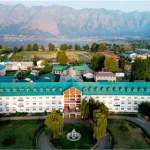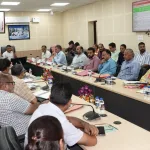Agriculture stands as the backbone of India’s economy, and farmers represent a pivotal section of our society. However, for decades, socio-economic disparities between urban and rural regions have hindered the financial prosperity of farming communities. This longstanding issue has plagued a significant portion of India’s population since independence. Recognizing this challenge, the Central and state governments have tirelessly endeavored to address the social and economic concerns of these communities through various initiatives aimed at uplifting them.
One such initiative that has made a significant impact is the Pradhan Mantri Kisan Samman Nidhi (PM-KISAN) Yojana, launched by the Government of India in 2019. This scheme aims to provide income support to farmers, thereby facilitating timely access to agricultural inputs by easing their liquidity needs. Under PM-KISAN, eligible landholding farmers’ families receive a financial benefit of Rs. 6000 per annum, payable in three equal installments of Rs. 2000 each every four months.
The PM-KISAN scheme supplements the finances of farmers, enabling them to procure essential farming inputs to enhance their yields. By providing income support directly into the bank accounts of beneficiaries through Direct Benefit Transfer (DBT), the scheme ensures transparency and efficiency in disbursing funds. It is noteworthy that the PM-KISAN scheme is fully funded by the Central Government, exemplifying its commitment to supporting the agricultural sector and rural communities across the nation.
In the context of Jammu and Kashmir (J&K), the PM-KISAN scheme has played a crucial role in transforming the lives of farmers in the region. Over the years, J&K has witnessed significant developmental strides, with various schemes and policies implemented by the Union Government being seamlessly extended to every corner of the state. The transformative change experienced by the people of J&K underscores the impact of initiatives like PM-KISAN in fostering inclusive growth and development.
Jagdish Raj Parihar from Kishtwar, expressing his gratitude, highlights the importance of the financial assistance provided under the PM-KISAN scheme. The three installments of Rs. 2000 each have served as crucial support for farmers like him, enabling them to meet their farming and other needs effectively. Similarly, Rajender Kumar, a farmer from Udhampur, acknowledges the annual financial support of Rs. 6000 received through the scheme. He credits Prime Minister Narendra Modi for implementing pro-poor policies that have empowered small and marginalized farmers, shielding them from the exploitative practices of money lenders.
The success of the PM-KISAN scheme in J&K is evident from the tangible benefits it has brought to farmers across the region. The timely infusion of financial support has not only enhanced the livelihoods of farmers but has also bolstered agricultural productivity and sustainability. By enabling farmers to invest in modern farming techniques, quality seeds, fertilizers, and other inputs, the scheme has contributed to increasing agricultural yields and incomes.
Furthermore, the PM-KISAN scheme has played a vital role in mitigating rural distress by reducing dependency on informal credit sources and alleviating financial burdens. The direct transfer of funds to farmers’ bank accounts has eliminated intermediaries, ensuring that the intended beneficiaries receive the full benefit of the scheme without any leakage or diversion of funds.
As J&K continues its developmental journey, initiatives like PM-KISAN serve as catalysts for inclusive growth and prosperity. The convergence of pro-farmer policies with broader development agendas has propelled the state towards a path of sustainable progress and equitable distribution of resources. The testimonies of farmers like Jagdish Raj Parihar and Rajender Kumar reflect the transformative impact of the PM-KISAN scheme in empowering farming communities and building a resilient agricultural sector in Jammu and Kashmir.
(Author is a Post Doc fellow in Public Administration, columnist and freelancer)





